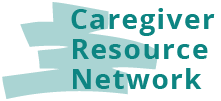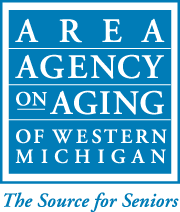Podcast
The podcasts of the Caregiver Resource Network(CRN) were created by CRN members with the hope that community members might share some wisdom from experts in the area of aging.
We hope that you might listen and enjoy some of the podcasts while you travel or relax.
Episodes
Elder Abuse
Episode: 26
Duration: 28:34
Elder Abuse is not heard of very often in the media. Is it under reported or not really a problem? What are the different types of abuse? What are some of the scams people should know about and be aware of? What personal information is safe to share with callers/e-mailers? Who is most often the person that victimizes the elderly? Who do you report suspected abuse to? How can others get involved in ending abuse and making a difference? What do you do if you suspect some form of abuse or financial exploitation within your own family? What are some signs of caregiver burnout, and could this lead to some forms of abuse or neglect? Is everyone equipped to be a family caregiver? What if there is a history of abuse within a family?
The Importance of Exercise in Caregiving
Episode: 25
Duration: 28:36
What affects can the role of caregiver have on your physical health? What affect can the role of caregiver have on your mental and emotion health? In your role as health promotions coordinator at Area Agency on Aging, what do you feel can be done to minimize those affects? Tell us about some of the healthy aging programs that are available nationally to help caregivers? Are their specific national programs that are more beneficial to the care recipient? Falls are the number one reason for hospitalization across the country, are there programs designed to reduce falls and therefore reduce the need for increased caregiving? How would someone find a program in their area? Is their typically a cost to these programs?
Home Adaptation for Caregiving
Episode: 24
Duration: 28:47
What do you mean by home adaptation How can products and adaptations to my home make it easier for my every day activities as a caregiver So adaptations and techniques to help a person be more independent and safe can also benefit the caregiver? Where do I start - how do I prepare my home? Who do I go to for ideas that will work for my home and person I'm caring for? I don't want a lot of changes to my home and I think that fewer changes will be less confusing for the person I'm caring for- how do I keep it simple but useful? What is Universal design and benefits from it? What are the most common obstacles or barriers in homes? What are some common home modifications that can be done to make a person more independent/safe in their own home? What are some examples of adaptive equipment used in the home to help an individual be more independent/safe? Why would Universal Design be good for someone without a disability? Where can I get some of these products? These sound like some practical ideas but how can I afford these products or changes?
First Steps for Consideration in One's Caregiver Journey
Episode: 23
Duration: 28:30
What are "first steps" that a caregiver should take when starting the caregiver journey? Do all family caregivers identify themselves as a "Caregiver"? Why do family members often fail to identify themselves as a "caregiver"? Explain the Ostrich Effect - many fail to do anything until in crisis...How do the "first steps" change for those who do not start the process of seeking help and information early in their caregiver journey? What is an Area Agency on Aging, and is there one in "my area?" What services do AAA's provide? What kind of classes should a caregiver consider taking? Are there different types of family caregivers? If so, what are they?
Nutrition
Episode: 22
Duration: 28:40
Why is it important for caregivers to eat healthy? What are some priorities for eating healthy? Any tips for how to make mealtime less stressful? How important is it to stay hydrated? Should caregivers take multivitamins? What are the best options for takeout? What are some meals to avoid? Where can caregivers get more information on healthy eating? Possible question about evidence based exercise classes - call AAA to find out what is available in your area Any differences you have noticed when the caregiver is a male? Why is it important for care recipients to eat healthy? Are there any differences in nutritional requirements for the care recipient? Are there any tips on how to make mealtimes easier for the person with Alzheimer's/dementia? How important is hydration for the care recipient? Can the care recipient help with meal prep?
Male Caregiving
Episode: 21
Duration: 27:42
Family Dynamics and Decision Making
Episode: 20
Duration: 28:36
Communication Issues
Episode: 19
Duration: 29:00
Holistic Caregiving
Episode: 18
Duration: 28:22
Hearing and Vision Loss
Episode: 14
Duration: 29:29

